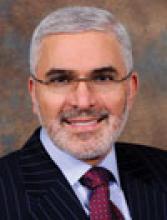Psychiatry is one of the most rapidly evolving medical disciplines. Its scientific foundation is neuroscience, which is growing at the most explosive pace in science. Yet the public and even other medical specialists still envision psychiatrists sitting behind a couch scribbling Freudian jargon on a yellow pad. For that reason, I propose that we create a manifesto that promulgates the basic tenets of psychiatry and make it a permanent, living document on CurrentPsychiatry.com.
So here I present my initial iteration of a psychiatric manifesto. I invite all readers and CurrentPsychiatry.com visitors to suggest valid additions and/or modifications. I will serve as the custodian and editor of the manifesto, in charge of its continuous update as a living document:
- Psychiatry is a medical specialty that focuses on brain disorders of behavior, thought, mood, cognition, and conation that are either primary, or secondary to general medical conditions or substance use.
- Psychiatric disorders are the product of complex interactions of genes and environmental factors, from the fetal stage throughout life.
- Psychiatric disorders are quite common, ranging from 25% to 50% of the population in various studies, and vary in severity from very mild to extremely severe and disabling.
- The complete assessment of psychiatric disorders almost always requires corroboration by a third party.
- A psychiatrist must be a fully trained physician who can integrate biologic, psychological, and social antecedents, make an accurate diagnosis, and administer pharmacologic/somatic and psychotherapeutic treatments to repair both brain and mind.
- As with all medical disciplines, the best outcome in psychiatry is full remission and recovery and the worst is mortality from suicide, homicide, self-neglect, comorbid medical illness, or iatrogenic causes.
- Social/vocational disability may be associated with some psychiatric disorders but most are not disabling. In addition, disability can remit but the mental health system penalizes recovery by withdrawing health care coverage.
- Psychiatric diagnoses have far more reliability than validity at this time. This discrepancy will be resolved as specific pathophysiologies of psychiatric disorders are elucidated.
- Severe psychiatric disorders with the potential for harm to self or others often require treatment against the will of the patient, whose insight into the illness and urgent need to receive treatment is seriously impaired. In contrast to their initial anger and resistance, involuntarily treated patients often are grateful after treatment.
- Current pharmacologic treatments of psychiatric disorders are based predominantly on serendipity rather than evidence-based neurobiologic mechanisms. However, the surge of genetic and neuroscience advances promises to lead to breakthroughs that will reshape treatment of psychiatric disorders.
- Although drug or neurostimulation treatments for psychiatric disorders are heavily regulated by the FDA and have specific indications based on large, placebo-controlled trials, psychosocial treatments are not. Extending regulatory approvals to psychotherapy may reduce the use of psychotherapeutic modalities not based on evidence.
- The public mental health system is broken and dysfunctional. Seriously mentally ill individuals are stigmatized and impoverished, lack primary medical care, die decades earlier than the life expectancy of the general population, often abuse alcohol and illicit drugs, and are incarcerated in such huge numbers that jails and prisons have transformed to the new mental “institutions.”
- The medical model is as appropriate for psychiatric disorders as it is for cancer and heart disease. However, political influences and the preponderance of nonphysicians in the mental health care system have shifted psychiatric treatment into a predominantly social model. This can be a disservice to psychiatric patients who do not receive any medical workup or treatment before diagnosis.
- Psychiatry has more detractors and self-appointed critics than any other medical specialty. This is the product of a malignant mix of ignorance and self-interest, especially by cults who offer their own scientifically untested “solutions” to mental illness (at a price, of course).
- The future of psychiatry is bright because it is intimately linked to neuroscience discoveries, which ultimately will delineate specific brain pathways underlying psychiatric nosology and treatment.
I invite readers to visit CurrentPsychiatry.com and suggest additions or modifications to this manifesto.


